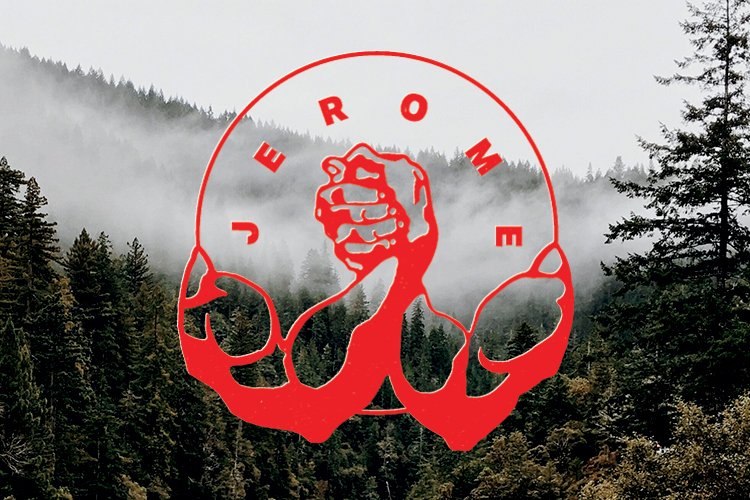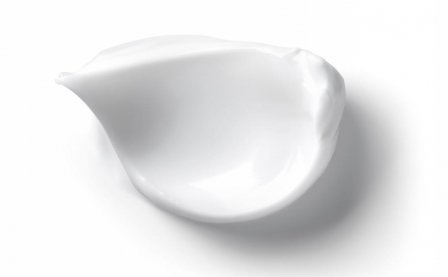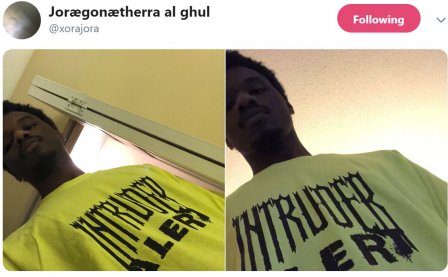When listening to a JEROME mix, no one knows if it will become a joyous revelation, or a cacophonic murder, or a horseback ride out into the Western Plains, or a deep-dive into a sunken ship caught in the same maelstrom that took so many merchants, explorers, doctors, artists, scientists, prisoners, and others down to the depths. And oftentimes you don’t know who the artists are, either, or the author of the music. Some mixes feel spooky and godlike, a grand production unable to be fouled by dross, a sprawling fairyland, a refuge from insignificance, graffiti on the gates of Heaven. Others have an inward sense of melting and languor, of a gun at your neck. The negativity of pain deepens the beauty. The pain there, and the beauty of that pain, deepens the experience of listening. The drums become your body. The club becomes a blood vessel. You are not alien to death. You are living but also dying and you are part of a violent, euphoric glaze. You are not in a club, but you are. You are not not. You are locked in knots.
It’s this sense of unknowing — in music and in life — that brought JEROME and I together. Over the course of a season, we chatted online about what inspired the label and what makes JEROME what it is today. If you haven’t listened to any of their mixes: check them out here. But before you do that, listen to the exclusive mix that JEROME made for Tiny Mix Tapes. Go down a twisted rabbit-hole of sonic art made from They That Are Unknown. Feel the dragon-mist in the castle-fog and ready your broadsword. The mixes open themselves up, like fresh wounds. They feel scraped up against your body via your eardrum. And they, like the owls, aren’t what they seem.
Why the name JEROME? Does it signify anything deep for you?
The name is a representation of influences in my life. JEROME comes from a semi-famous moment in college basketball, when a player by the name of Jerome Lane throws down a crazy dunk that destroys the backboard, which causes the announcer to say “send it in, Jerome!” That stuck with me. Later down the line, we’ve thought — as a group — that the music kind of represents that moment, of doing the craziest moves within electronic music and breaking something along the way.
How would you define what JEROME does?
JEROME was an idea I had for a while. I knew that I wanted to get more sound out and expose more people to this worldwide pool of talent, but wasn’t exactly sure how to go about it. Eventually, I decided to begin with a mix series, born out of originally wanting to create a radio station. Over the first year, as things grew both in scope and team members, we realized we needed to get more of this music out to people, and for the last year we’ve been working on doing that. I define JEROME simply as an outlet for people who are interested in exploring music as much as we are! I want artists to be themselves and create with no guidance, so that they can make something incredible.
“They are them; we are us.” What does this message — JEROME’S motto — mean to you?
We are who we are, and we aren’t going to change for anyone, and we allow others to be who they are! I was shown this lyric by a friend of mine, who said it was from a Tyler, the Creator song.
A lot of JEROME’s mixes gravitate around the idea of club music and the idea of the club. What are you looking for when you release that kind of music?
We really strive to put out music that catches our ears but might not be able to find a stable label home without changing to something more friendly or palatable. I think this can sometimes be hard to pin down, because it’s less about maintaining a strict sonic profile and more about seeking out artists working in their own way.
To me, music should have a mind of its own, so I can’t really know where electronic music is headed: I’m sure I could smash some genre names together to get the next buzz going for 2019, but that’s not really me. However, I feel like artists should forge whatever path they want to and try not to feel limited by the sounds going on around them, but inspired. People will gravitate towards that, and a community can be built.
How do you go about finding these artists? A lot of them are obscure and make esoteric music. Do you seek them out or do you often get messages from musicians who want to submit a mix?
When it comes to finding the mixfiles, some are sought out, some are brought to us, and sometimes it’s just how things line up. We spend a lot of time digging through a SoundCloud account’s followers and likes, and reach out to artists who are making music that sounds amazing to us. We seek out what we think more people should hear, as opposed to who would be “best” for the next release. Some artists have maybe 40 followers and are geographically located quite far from a tangible club scene, so we’re like “let’s see what they can come up with!” and usually it’s amazing and unique. It feels very of this time, because the internet allows these people to consume club culture from their remote locations, and also allows us to find them. Overall, I’d say 70% of artists are found through our own digging and 30% are split between recommendations and emails we receive.
Has SoundCloud ever given you any trouble about posting music on their website? Have you ever had to take down a mix, or take it down because someone asked you to?
In total, we’ve had three mixfiles taken down, but in those cases, we’ll often turn to another platform, like Mixcloud.
Lately, I’ve been hearing an increasingly aggressive tone occurring in many club scenes worldwide. It’s a lot of dark stuff — oftentimes laced heavily with noise — meant to be played in a space (normally) known for epiphany. What do you think this aggression, or darkness, has to do with life and with music?
I think a lot of the dark or aggressive music might have to do with a lot of the world’s social climate right now. Lately, there is a lot of chaos and I feel like that’s being reflected in a lot of the musical output; from the more experimental pieces that eschew the typical structure of a club track to the more dancefloor-focused work. Groups like Even The Strong and Flood immediately come to mind. The world is confusing right now, regardless of your political lines, and some days the chaos feels unending. It’s nice to have an organized chaos, and the hope that the unease — in a piece of music, or in your life — will come to an end.
Why do you think the club produces such anxiety?
I think meeting new people, especially in a place like the club, can inspire a sense of anxiety. Our sense of clubbing is mostly related to drinking and spending money on drinking in order to book a venue: hopefully more places push for change in that department. I hope to see more club nights without drinking and at different times during the day.
In a world swarming with DJs, with show after show, night after night after night and back after back after back, how much power and agency does a DJ have in changing or defining the culture of today?<?b>
I think DJs have always defined culture, but the world is changing with the internet. Now, the DJ has had even more of an influence. I think it’s more important to know what they are playing rather then what they look like, and I think JEROME is trying to do that. I also don’t like the old vanguard that says that DJs have to mix a certain way; I want them to feel like they can mix however they want and cut up music however they want. We want to do away with the traditional form of mixing and allow DJs to push boundaries, like playing a classical song next to a Black Kray song next to a punk record next to trance.
Are there any music scenes that you are really into right now?
I really find the Gqom scene in Durban intriguing: it’s very raw and dancefloor-ready, and I think the artists in that scene are pushing their sound down amazing avenues. I also think that a lot small cities and towns in the US are being overlooked. Joragon, for example, is creating lovely mashed up music and building a collective. I would love to see more pockets like this develop! Other sounds coming out of the Americas, like N.A.A.F.I and Tormenta, are inspiring, along with the scene growing in Asia with Genome 6.66mbp and Absurd TRAX, and INTRUDER ALERT in Poland.
A lot of the musicians and musical scenes that JEROME collaborates with seem to be comprised of marginalized members of society. Do you think JEROME is out there to give those people a kind of power?
I do think it’s imperative that if you have a platform of any kind — and if you have a “power” of any sort — to make sure your power is used for good. If we can use that power to give a voice to marginalized communities and allow them to present an experience in a way that others are able to relate to, then we are doing good.
When conceiving of JEROME, did your vision change once you got it started? (You wanted A, B, and C to happen but got X, Y, and Z, instead?)
I started JEROME to get music out there from under-appreciated artists and friends of mine, and I never wanted it to be more then a mixfile series. But as things evolved, I wanted to push featuring more artists. I don’t feel like our vision ever changed. I still feel like this is the luckiest thing I get to do everyday!
Who has come before JEROME that inspired it?
JEROME would be nothing without stations like NTS and Rinse FM. I think radio is a big influence on our whole team. Shout out to current radio shows like Precious Metals, Whities, Hessle Audio, and so many more that we’ll just never stop listening to.



